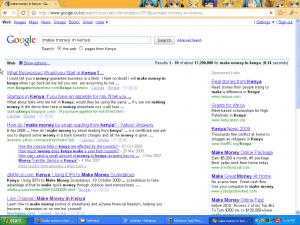Peoplestring isn’t your average social network. Yes, it is a social network site much like Facebook, but with a surprising twist: you earn money for just using the website.. Interestingly, the makers of peoplestring pledge to share upto 70% of the site’s earnings with its users. They will make periodic payments to members for doing things that we all do anyway: read email, invite friends, surf the net, etc etc. Cool eh?
Read more about peoplestring. I think it is pretty cool – you should try it out.
What about pesatupu.com? This one is interesting. If you visit www.pesatupu.com, you will notice that it looks exactly like peoplestring. Weird? Yes, very weird and possibly criminal. I do not know why the people behind pesatupu have done this – my guess is that it is some sort of subtle ploy. Notice that people string pays its members whenever they invite their friends to use it. I am guessing that when you sign up to peoplestring from pesatupu.com, the makers of pesatupu get paid. Of course, I could be wrong.
Whether I am wrong or not, pesatupu is a sham. Making money is good, but not like this.

 We talk a lot about making money on this site. In fact, we ask this
We talk a lot about making money on this site. In fact, we ask this